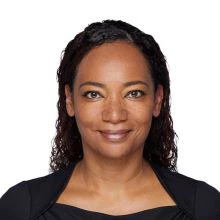 A customized wheelchair with bicycle-like wheels designed for easier navigation on rough terrain in Rural Tanzania. An example of how families with persons with disabilities are innovating around inaccessible infrastructure. Photo: World Bank
A customized wheelchair with bicycle-like wheels designed for easier navigation on rough terrain in Rural Tanzania. An example of how families with persons with disabilities are innovating around inaccessible infrastructure. Photo: World Bank
“They said I was a burden, but here I am, carrying my world on my shoulders, turning pain into power.”
- Amina, a Tanzanian mother with a disability.
Amina is a mother of two from Zanzibar and lives with a disability. She faced relentless violence in her marriage, but her parents advised her to stay with her abusive husband. He provided for the family and given the stigma surrounding disability, finding a husband is perceived to be challenging for a woman with a disability.
Defying her parents’ advice, Amina left her abusive relationship, starting a small henna-making business to raise her children. Life is still hard, but Amina’s will to imagine a life free of violence for herself teaches us valuable lessons.
As we commemorate the International Day of Persons with Disabilities during 16 Days of Activism against Gender-Based Violence, we reflect on three things we learned about gender-based violence (GBV) from one year of engaging with and listening to people with disabilities all over Tanzania.
Women and girls with disabilities report high levels of sexual and gender-based violence: Gender-based violence is a huge development challenge, with new data showing that 35% of Tanzanian women have suffered from physical violence inflicted by an intimate partner. We also know that most of the approximately 5.3 million people in the United Republic of Tanzania currently living with a disability are female.
One of the starkest findings in an ongoing qualitative study on disability conducted by the World Bank here was that people with disabilities were vulnerable to multiple forms of GBV. Women with disabilities noted the normalization of rape, either by family or community members or strangers.
Different types of disability increase their degree of vulnerability. People with albinism, for example, are vulnerable to sexual abuse as well as infectious diseases due to local harmful myths that having sexual relations with someone with albinism can cure HIV/AIDS. Smaller scale, regional studies mapping links between disability and the likelihood of intimate partner violence and sexual violence have similar findings. This suggests we need to collect data on GBV against people with disabilities more systematically.
Access to services and justice is challenging: People with disabilities are often hesitant to formally report violence, because of the stigma they encounter. Women that have reported, share experiences of not being believed or being humiliated while reporting, because of their disability. Even if services are available, they are often not tailored to the needs of people with disabilities. For example, sign language interpretation (SLI) is not available in some courts. Adolescents with disabilities (notably with intellectual disabilities) are also vulnerable to violence, sometimes because of deep-rooted stigma. In other cases, it might be that service providers are not adequately trained or resourced to deliver survivor-oriented services.
The recently approved Gender Policy in mainland Tanzania and the forthcoming policy in Zanzibar, and National Plans of Action to End Violence Against Women and Women and Children, provide a roadmap on how to improve high-quality services and make them more accessible. Nobody must be left behind in the progress towards gender equality. This calls for a concerted effort from government, civil society, health and legal systems, the private sector, and citizens.
Women with disabilities ask to be at the center of solutions and response: We heard this phrase repeated often: "Nothing about us without us." People with disabilities want to be at the decision-making table. Their voices need to be heard and amplified so that policy changes work for them.
What does that look like?
It means looking for the voices of women and girls with disabilities, and it means including people with disabilities in the workforce of the service providers trained to address GBV. It also means enabling people with disabilities to be in leadership positions, addressing gender inequality.
The Government of Tanzania leads the way for all of us in this area! Women with disabilities educated us about the need to move away from a “charity model” or the “medical model” where disability is seen as a health issue that needs to be “fixed” rather than making socio-environmental changes to affirm a human-rights model. Survivors of violence, regardless of their abilities, deserve access to services to be able to lead fulfilling lives.
Here at the World Bank, we challenge ourselves to be bold and integrate these concerns into our work. Our revised Disability Inclusion and Accountability Framework offers a roadmap to include disability in our policies, operations, and analytical work to help our clients put disability-inclusive programs into place.
The World Bank has made ten commitments to accelerate action toward disability-inclusive development. IDA20, the Bank’s latest financing package for the world’s poorest countries, has adopted a standalone commitment to embed disability inclusion across core services. Prevailing norms tend to see people with disabilities as burdens, but together, we must strive for individuals like Amina to be seen as pillars of resilience who strengthen the fabric of Tanzanian society. Together, we can do better – Pamoja tunaweza!



Join the Conversation